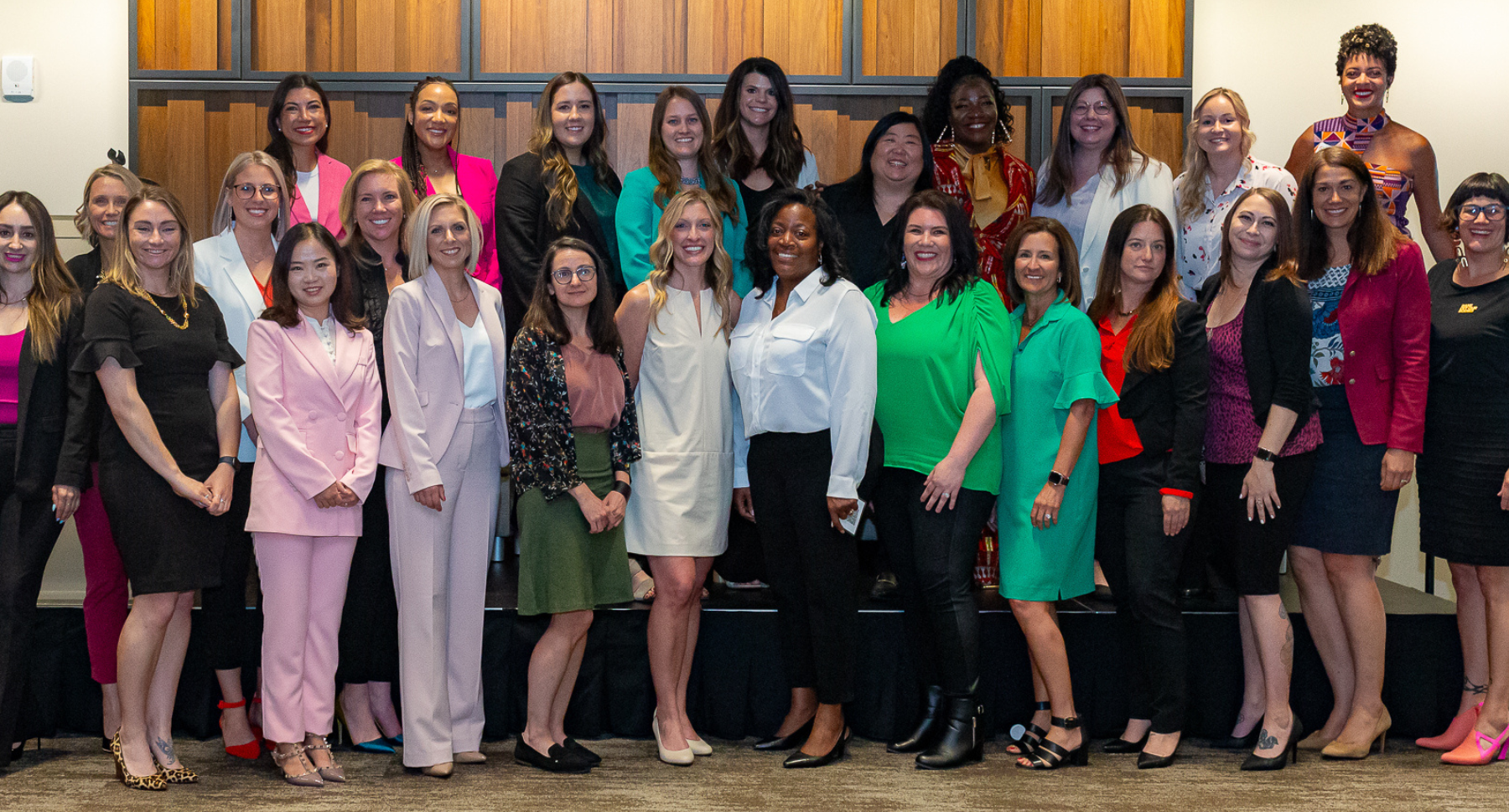Women’s Leadership Lab Interrogates The System

Exploring workplace issues and how they influence the advancement of women in work
The Women’s Leadership Lab is a program of the Colorado Women’s Chamber Foundation (CWCF) that is designed to help emerging female leaders influence their community, develop skills to support advancement, and expand their understanding of the current business architecture impacting women in work.
We’re proud to say that 50% of graduates of this year’s cohort received a pay raise and/or change in job title after completing the program.
The 2022-2023 cohort of the Women’s Leadership Lab, as part of their program, also engaged in a year-long exploration of the following six common issues that influence and impact the advancement of women in work and recommendations for action.
- How organizations redline women from C-suite roles
- Pay Equity
- How to value and reward soft skills in the workplace
- A culture of sponsorship supports women in career growth
- Workplace flexibility increases equitable engagement for women
- Intentional recruitment and retention tactics to diversify the C-suite
As recent as 1980, women were still required to have a male cosigner on a business loan. Fast forward four decades later and half of the working population is still challenged to advance to the highest levels of leadership. Today, women make up only 17% of C-suite executives and remain underrepresented at every level.
At the height of the COVID-19 pandemic, the workforce lost two million women during “The Great Shecession.”It became painfully apparent that workplace policies were not equitably sufficient to sustain working women who tend to also be caregivers to others. Companies are trained to stay afloat amid a health crisis and experts say these deficits will be felt for many years.
For employers to make up for decades of unequal treatment in the workplace and the entrepreneurial field, it’s necessary to evaluate the specific and often nuanced challenges that women – and in particular women of color – face in the workplace.
Diversity initiatives represented with a variety of weighty acronyms (DEI, DEIB, JEDI, IDEA) have been an intense focus of many organizations in recent years. However you spell it, evaluating diversity, equity, inclusion, belonging, and justice is not only the right thing to do to address generational inequities, but it can also drive critical business outcomes. These outcomes include increased market share, increased revenue, and other competitive advantages in the market, which often support talent recruitment and retention.
The Colorado business landscape has an opportunity to thrive with a renewed dedication to making business work for all. Now is the time to evaluate past inequities, enact new equitable policies, and promote diversity in a thoughtful, meaningful way to benefit individuals, businesses, and society.
Share this article:
Other Articles

